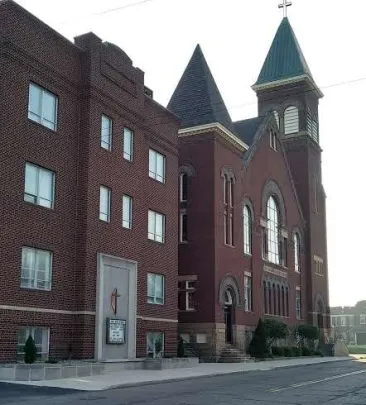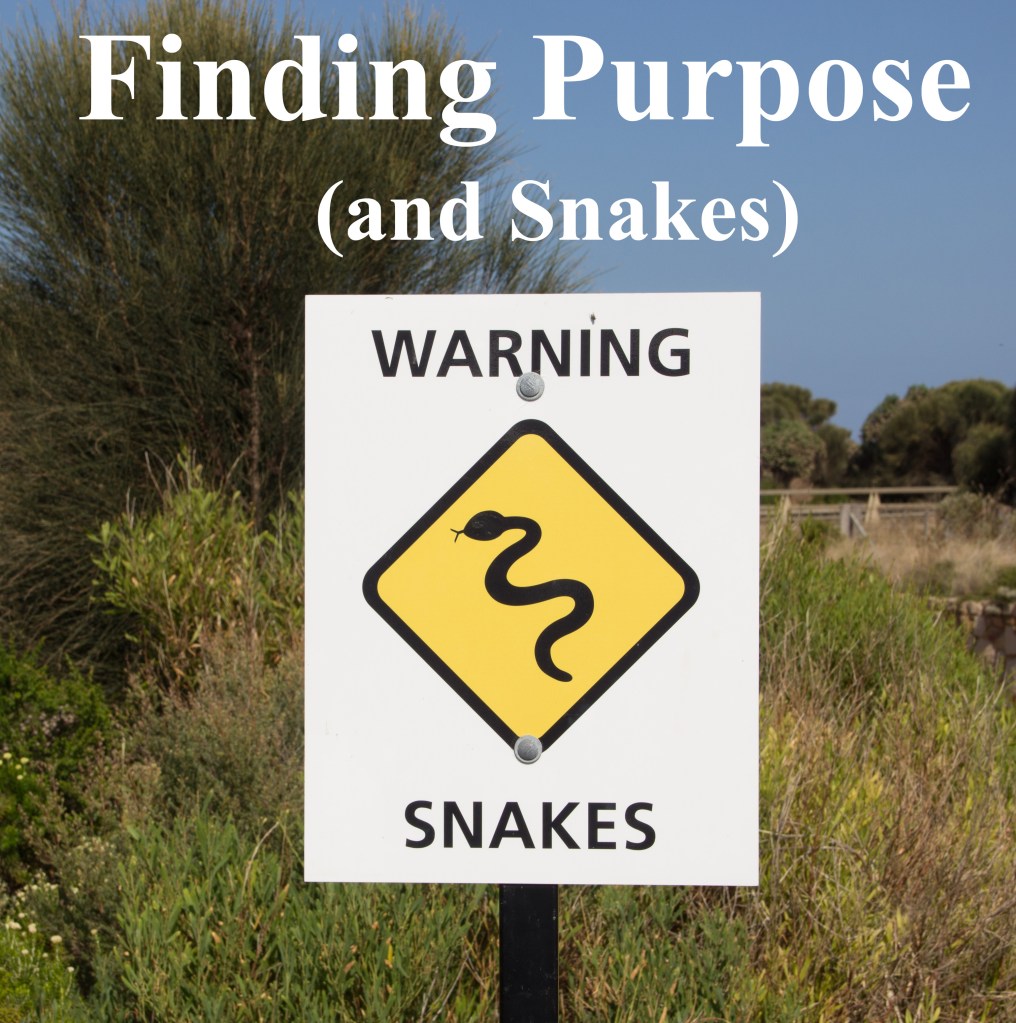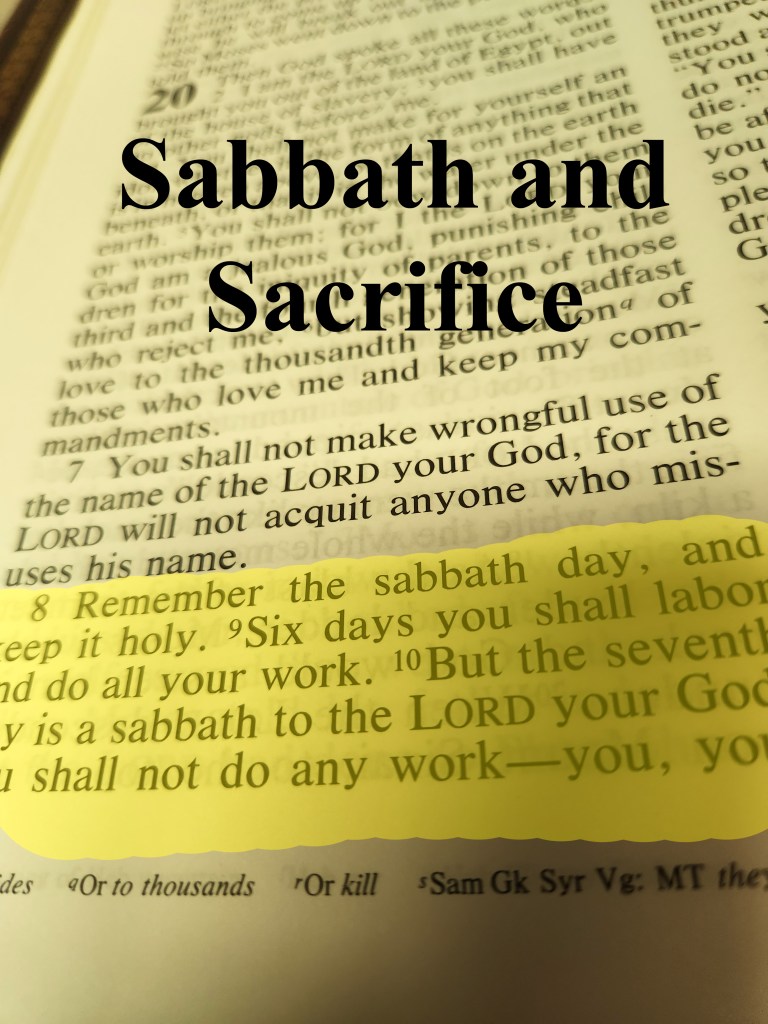
John 10:11-18 Acts 4:5-12 1 John 3:16-24
Have you ever driven a rental car? You can never be too sure about rental cars because, although they are usually new, people often drive them in ways that you would not drive your family car. I’ve heard stories about rental cars being destroyed because there are often no repercussions if you pay for the insurance in advance. Military vehicles are often in a comparable situation, although destroying them is punishable, it is not all uncommon for young soldiers to take vehicles off-road, bury them to the axles in mud, or worse, and just generally drive them… shall we say… harshly. Though in some cases, the motor sergeant is going to own you for a while.
There is a saying, “Drive it like you stole it” that might be applied to both rental cars and military vehicles. At the heart of this discussion is the issue of ownership. Ownership of the car makes a difference. If those same young soldiers spent several years working at the local fast food franchise to buy their own car, and then did a lot of their own labor to fix it up and add after-factory accessories and bling to it, the odds are good that they would drive that car in a vastly different way than a rental car or military motor pool vehicle.
Ownership makes a difference in many things. And it is that principle that we find at the core of our story this morning in John 10:11-18 when Jesus says…
11 “I am the good shepherd. The good shepherd lays down his life for the sheep. 12 The hired hand is not the shepherd and does not own the sheep. So, when he sees the wolf coming, he abandons the sheep and runs away. Then the wolf attacks the flock and scatters it. 13 The man runs away because he is a hired hand and cares nothing for the sheep.
14 “I am the good shepherd; I know my sheep and my sheep know me— 15 just as the Father knows me and I know the Father—and I lay down my life for the sheep. 16 I have other sheep that are not of this sheep pen. I must bring them also. They too will listen to my voice, and there shall be one flock and one shepherd. 17 The reason my Father loves me is that I lay down my life—only to take it up again. 18 No one takes it from me, but I lay it down of my own accord. I have authority to lay it down and authority to take it up again. This command I received from my Father.”
Jesus said, “I am the good shepherd” and not a hired hand. The difference between the good shepherd who lays down his life for his sheep, and the hired hand who runs away and allows the flock to be scattered, is ownership. The flock belongs to Jesus, and not only does he protect it and preserve it with his life, but he has a relationship with his sheep. He knows everything about his sheep, and they know him. And because they know him, and they trust him, they listen to his voice and follow his commands. And that illustration is accurate. Before we went into ministry, Patti and I had seven acres and, at one time, two sheep. Every day I let them out of the barn in the morning and they ran out to the pasture to graze. But every evening I opened the door to their stall, and then the barn door, and as soon as I called them, they ran in. If it was anybody but Patti or I, they didn’t come because they didn’t know them.
Ownership, and relationships, make a difference.
And so, when Peter and John are detained, if not arrested, and brought before the elders to make an accounting for the lame man that they healed at the temple gate, they don’t take the credit for anything, but instead point to the good shepherd. Let’s read the story in Acts 4:5-12:
5 The next day the rulers, the elders and the teachers of the law met in Jerusalem. 6 Annas the high priest was there, and so were Caiaphas, John, Alexander, and others of the high priest’s family. 7 They had Peter and John brought before them and began to question them: “By what power or what name did you do this?”
8 Then Peter, filled with the Holy Spirit, said to them: “Rulers and elders of the people! 9 If we are being called to account today for an act of kindness shown to a man who was lame and are being asked how he was healed, 10 then know this, you and all the people of Israel: It is by the name of Jesus Christ of Nazareth, whom you crucified but whom God raised from the dead, that this man stands before you healed. 11 Jesus is
“‘the stone you builders rejected, which has become the cornerstone.’
12 Salvation is found in no one else, for there is no other name under heaven given to mankind by which we must be saved.”
Peter and John knew the good shepherd and had a relationship with him. And so, as his followers, or as John Bunyan said it in Pilgrim’s Progress, as under-shepherds, they knew from where their authority and power had come and gave credit and testimony to Jesus for the healing of the lame man who had begged at the gate to the temple.
But why? And why does knowing why matter to us? And how does knowing inform us, and instruct us, about how we should live our lives today? The Apostle John understood that these are legitimate questions, and they were questions that the church was asking two thousand years ago just as we ask them today. And that’s why we find John’s answer to the first century church, and to us, in 1 John 3:16-24, when he explains that…
16 This is how we know what love is: Jesus Christ laid down his life for us. And we ought to lay down our lives for our brothers and sisters. 17 If anyone has material possessions and sees a brother or sister in need but has no pity on them, how can the love of God be in that person? 18 Dear children, let us not love with words or speech but with actions and in truth.
19 This is how we know that we belong to the truth and how we set our hearts at rest in his presence: 20 If our hearts condemn us, we know that God is greater than our hearts, and he knows everything. 21 Dear friends, if our hearts do not condemn us, we have confidence before God 22 and receive from him anything we ask, because we keep his commands and do what pleases him. 23 And this is his command: to believe in the name of his Son, Jesus Christ, and to love one another as he commanded us. 24 The one who keeps God’s commands lives in him, and he in them. And this is how we know that he lives in us: We know it by the Spirit he gave us.
Jesus said that he was the good shepherd, because the shepherd has ownership of his sheep, and is willing to lay down his life to protect them. Jesus did just that. He laid down his life so that we could be rescued from sin and death. Building on that, John makes the point that if Jesus laid down his life for us, then we should be ready to lay down our lives for our brothers and sisters. If the followers of Jesus Christ are blessed enough to have money, cars, houses, and other material possessions, and have no pity for brothers and sisters that are in need, then how can we believe that the love of God is in them at all? Love, John says, isn’t about the words that we say, but in the actions that we take. Love isn’t saying that we care about the poor, or giving speeches about how much we love them. Love is making sure that they have food, clothing, and a place to live.
John says that “the one who keeps God’s commands lives in him, and he in them. And this is how we know that he lives in us: We know it by the Spirit he gave us.” If we love God, if the Spirit of God truly lives in us, then we will keep God’s commandments, do the things that God asks us to do, and love the people around us in the way that Jesus loved them. The abridged version is that if we truly believe, then we will use what we have, to take action and love the people around us by caring for their needs.
Jesus is the good shepherd. He has ownership and is not a hired hand, so he was willing to lay down his life for his sheep. But a good shepherd also has a relationship with their sheep. He knows them, and they know him. And because we have a relationship with Jesus, as our good shepherd, we have made a commitment to follow him, to obey him, and to love the world the way that Jesus loved.
Love is not words; love is an action.
How will you show the people of your community the love of Jesus today?
That is a question we should ask ourselves every day, and every time we see people who are struggling.
How will we show them the love of Jesus today?
Please LIKE and SHARE!
Click here to subscribe to Pastor John’s blog.
Click here if you would like to subscribe to Pastor John’s weekly messages.
Click here to visit Pastor John’s YouTube channel.
*You have been reading a message presented at Christ United Methodist Church on the date noted at the top of the first page. Rev. John Partridge is the pastor at Christ UMC in Alliance, Ohio. Duplication of this message is a part of our Media ministry, if you have received a blessing in this way, we would love to hear from you. Letters and donations in support of the Media ministry or any of our other projects may be sent to Christ United Methodist Church, 470 East Broadway Street, Alliance, Ohio 44601. These messages are available to any interested persons regardless of membership. You may subscribe to these messages, in print or electronic formats, by writing to the address noted, or by contacting us at secretary@CUMCAlliance.org. These messages can also be found online at https://pastorpartridge.com . All Scripture quotations, unless otherwise indicated, are taken from the Holy Bible, New International Version®, NIV®. Copyright ©1973, 1978, 1984, 2011 by Biblica, Inc.™ Used by permission of Zondervan. All rights reserved worldwide. www.zondervan.comThe “NIV” and “New International Version” are trademarks registered in the United States Patent and Trademark Office by Biblica, Inc.™
Photo by Sarej on Freeimages.com









